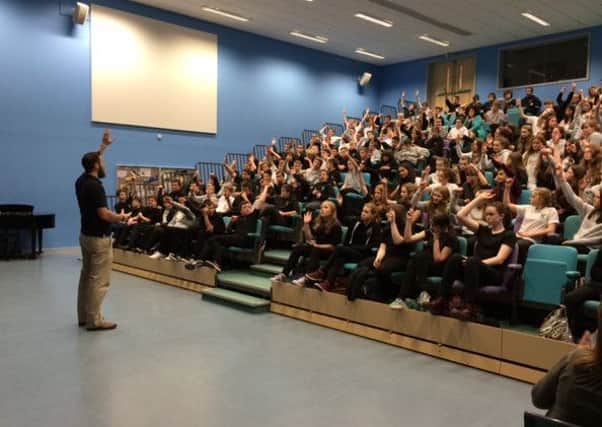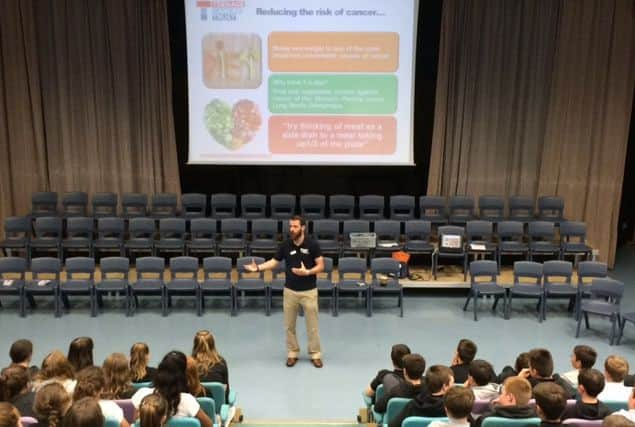Cancer lessons ‘improve early detection in teens’


But despite cure rates improving – and a campaign by the Scottish Government to get people talking about the signs and symptoms of cancer – it can still be a daunting subject for children.
Now research by Scottish scientists has found that by giving schoolchildren a short presentation on the disease, young teenagers are more than three times as likely to discuss cancer with their parents.
Advertisement
Hide AdAdvertisement
Hide AdMore than 2,000 12 and 13-year-olds from schools across Glasgow took part in the study, looking at whether an educational intervention by the charity Teenage Cancer Trust made a positive difference. Researchers from the University of Stirling found there was an 18 per cent increase in children recognising that unexplained weight loss could be a sign of cancer, and a 25 per cent increase in them knowing a change to a mole could be worrisome.


The schoolchildren also showed an increased knowledge of risk factors associated with getting cancer, with 17 per cent understanding that getting sunburn as a child and 13 per cent that being overweight could increase chances of getting the disease.
The children were nearly three times as likely to discuss cancer with the researchers than children who had not been part of the intervention.
Lead researcher Gill Hubbard, co-director of the Cancer Care Research Centre at the University of Stirling, said: “The work of the Teenage Cancer Trust had never been evaluated before and there is plenty of evidence to show how much of an impact it has made.
“The teenagers were more than three times as likely to talk to their parents about cancer, which is so important. If they can talk to their parents, then evidence has shown they are more likely to get an earlier diagnosis of cancer.”
Iona Stoddart, education and awareness programme manager at Teenage Cancer Trust said: “The research champions a view that Teenage Cancer Trust has long held: that improving awareness of the signs of cancer, cancer prevention and cancer communication can save lives. 200 young people in Scotland are diagnosed with cancer every year and this figure is constantly rising. For many of these young people, their cancer diagnosis will have been delayed, often because young people don’t recognise serious symptoms and therefore don’t seek help. Our education sessions give young people the tools and skills that empower them to talk more openly and take responsibility for their own health.”
